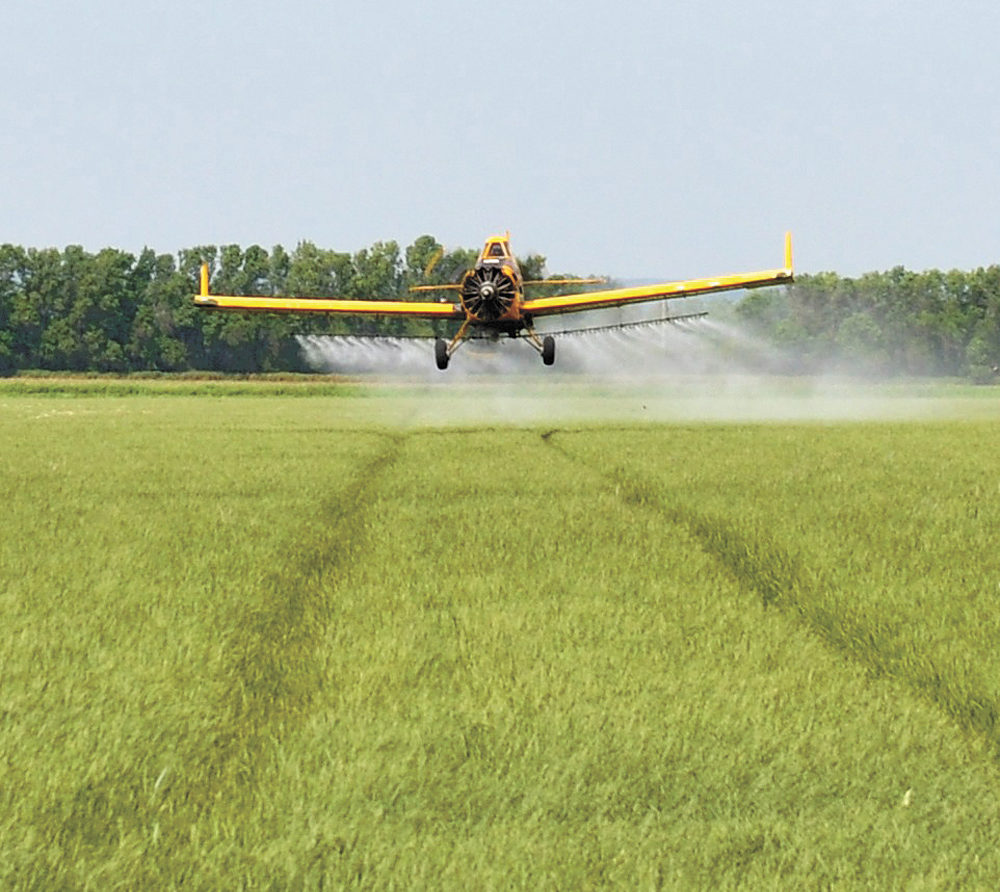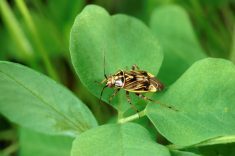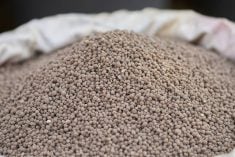With harvest approaching, western Canadian farmers are being reminded to avoid trade disruptions by “Keeping it (crops) Clean” from pesticide residues.
Even though a pesticide is registered for use in Canada it might not have been approved in an importing country, which means there’s no acceptable level of residue.
With that in mind members of the Western Grain Elevator Association (WGEA), which consists of Western Canada’s major grain companies, won’t buy crops in the new 2017-18 crop year starting Aug. 1 that have been treated with the following products:
Read Also

Air, land and sea join forces as Manitoba launches Arctic trade corridor plans
Manitoba wants to take its Arctic trade routes to the big leagues. The Port of Churchill, CentrePort Canada and Winnipeg airport have all raised their hands to help it happen.
- Chlormequat (Manipulator plant growth regulator) on wheat or any other cereal.
- Quinclorac (including Clever Dry Flow Herbicide) on canola.
- Metconazole (including Quash fungicide) on canola.
- Fluoxastrobin (including Evito fungicide) on soybeans.
- Benzovindiflupyr (Solatenol) (including Elatus Co-Pack or Trivapro Co-Pack fungicide) on soybeans.
- Saflufenacil (Heat LQ) used pre-harvest on wheat, durum, barley and flax.
(These five pesticides are listed in the Declaration of Eligibility for Delivery form farmers must sign before delivering grain to an elevator.)
The prohibition isn’t new. A list of the pesticides grain companies didn’t want used this growing season was sent to pesticide retailers in the spring. In addition, an electronic postcard was sent to some farmers listing the “Products of concern for the 2017 growing season.”
Glyphosate concern
Farmers are also being urged to follow label directions, including rates and timing, to avoid exceeding permitted residue levels. That includes glyphosate, Cereals Canada’s website says.
“Glyphosate has come under increased scrutiny, when compared to other pesticides, due to recent media attention generated by those who do not support the use of pesticides for any reason,” Cereals Canada’s website says. “Unlike many products applied in fall, applying glyphosate when kernels are too green — 30 per cent moisture or above — can result in residues that are greater than the maximum allowable limit.”
Farmers can reduce glyphosate residues by following label directions, which include not applying glyphosate to cereals when kernels are 30 per cent moisture or greater in the least mature areas of the field.
Farmers should also abide by the pre-harvest interval.
“Some customers have contract limitations on fall application of glyphosate,” Cereals Canada says. “Talk to your grain buyers to ensure they know what crop protection products you intend to use, and to confirm that none of these products will cause concern for export or domestic customers.”
Farmers can get more information on preventing pesticide residues on cereals, canola and pulse crops at the Keeping it Clean website.
Pulse crops are more complex with some pesticides being allowed on some pulses and not others. Find detailed information on that at the Keeping it Clean website or go directly to: www.pulsecanada.com and search for ‘bulletin.’
The Manitoba Wheat and Barley Growers Association (MWBGA) issued a news release July 19 reminding farmers to “properly declare the commodity they are delivering in order to protect Canada’s domestic and export markets.”
“We are raising awareness of these resources as the harvest season approaches to ensure individual producers are safeguarded, and that the wheat and barley grown in Manitoba will meet all end-user requirements, domestically and internationally,” MWBGA president Fred Greig said.
“We also encourage farmers to talk with their grain buyers to know the requirements for market acceptance and to obtain details for the Declaration of Eligibility for Delivery form,” MWBGA vice-chair Robert Misko said.
Find the declaration on the Canadian Grain Commission website (PDF).


















